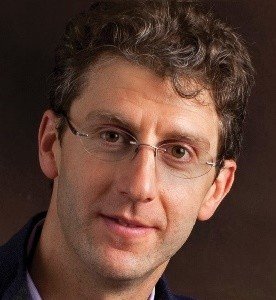Ever wonder how long it takes cancer to begin causing symptoms?
Or how long a person can have cancer without knowing of its existence?
Now that really is a scary thought: That somewhere in your body there could be cancer growing that will start causing symptoms three years from now.
When someone begins developing symptoms that turn out to be cancer, one has to wonder how long the tumor was present before the signs began appearing.
Cancer is not an infection; its presence does not appear overnight.
Perhaps the cancer that can stay under the radar for the longest is basal cell carcinoma.
It’s super slow-growing and easily mimics several benign skin conditions.
Unless in a very advanced stage, it does not cause symptoms that the patient can feel.
But overall, as an average, how long can a person have cancerous cells proliferating somewhere in their body before feeling the symptoms?
“Typically one would have cancer for several years [around four] before manifesting with consistent symptoms that prompt a clinical evaluation,” says Mark Levandovsky, MD, Founder and Medical Director of Preventive Medicine and Cancer Care.
Dr. Levandovsky is a board certified internist and oncologist/hematologist in practice for 20 years.
“However, the impact of genetic predisposition can radically change that. For that reason appropriate risk stratification and modification of exposure/lifestyle risk factors is paramount.”
When a person first notices the symptoms of cancer is not the same as how much time passes between symptom onset and diagnosis.
For example, a person could be aware of a new flat growth slowly growing on their forehead — yet wait seven years before getting it examined – and diagnosed as basal cell carcinoma.
A man may begin having symptoms of prostate cancer yet wait a full year before finally seeing a doctor.
Another cancer that’s associated with delayed diagnosis due to the patient putting off seeking medical attention is that of the colon.
The question is: How long can the malignant tumor be inside the colon before it starts causing symptoms?
“Originally, the guidelines recommending colonoscopy every 10 years presupposed that it takes about 10 years to develop a colon cancer,” says Dr. Levandovsky.
“However, for certain individuals with genetic predisposition, that process could take about three years.
“Hence, knowing personalized risk with personal exposures in family history are very important in tailoring screening and prevention strategies.
“It is important to emphasize, however, that it does take years for normal cells to turn into precancerous and then further change/mutate into cancer.”

cancer.gov Bruce Wetzel and Harry Schaefer
Changing the Trajectory of Cell Transformation
“Since it does not happen overnight and usually takes years, we have a lot of change/exit strategies that can retard, arrest or even reverse general conditions that can cause a normal cell to turn into a cancer cell (it’s a multi-step process),” explains Dr. Levandovsky.
“There were a number of early compelling nutritional experiments with exposing people to a highly processed Western-type diet with refined carbohydrates and meats — as opposed to a plant-based whole-foods diet with complex carbohydrates, fibers and plant based protein and tree nuts.
“Within two weeks of the typical Western diet, markers of inflammation and bacterial flora had a signature that would be more associated with precancerous changes in the lining of the colon.
“Conversely, transitioning to a healthier diet consisting of raw fruits/vegetables, complex carbs, fiber and plant based fat/protein and nuts would reverse that same signature within two to four weeks.
“Hence, we do have a lot of control over what happens to us, but it entails active personal effort with lifestyle changes and consistent participation, not a miracle pill.”
Many cancer experts believe that out-of-control cellular growth occurs quite a few times in the human body without the person ever knowing or developing symptoms.
And that’s because the immune system snuffs out the early stages of the deranged transformation before it gets out of hand.
Other slow growing cancers – that can progress under a person’s radar for quite some time – include squamous cell carcinoma, iris melanoma, superficial spreading melanoma, and some forms of breast and prostate cancer.




























